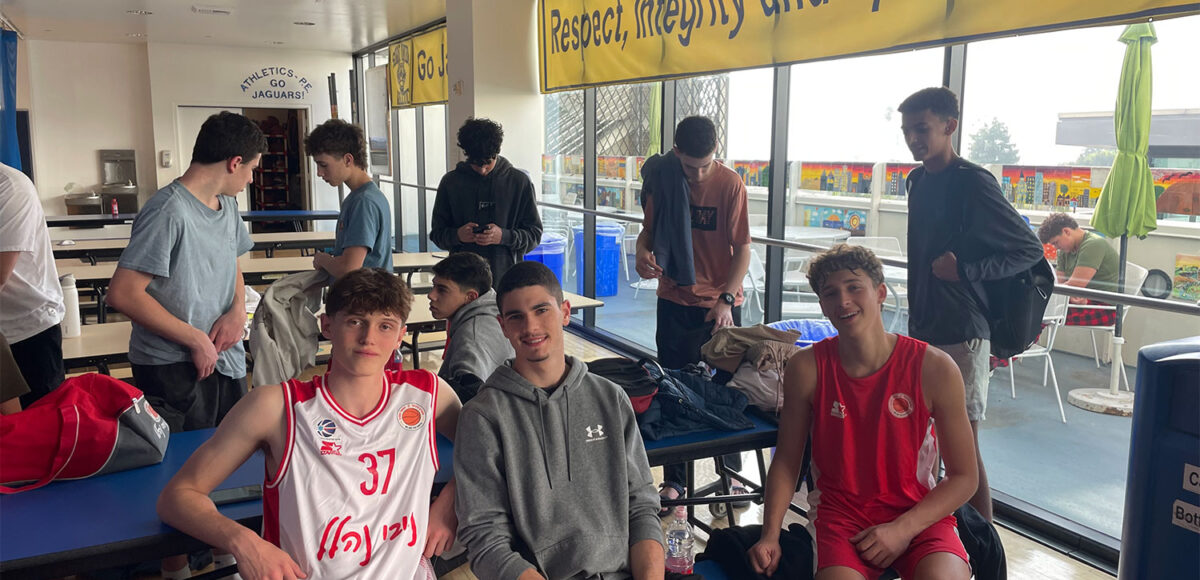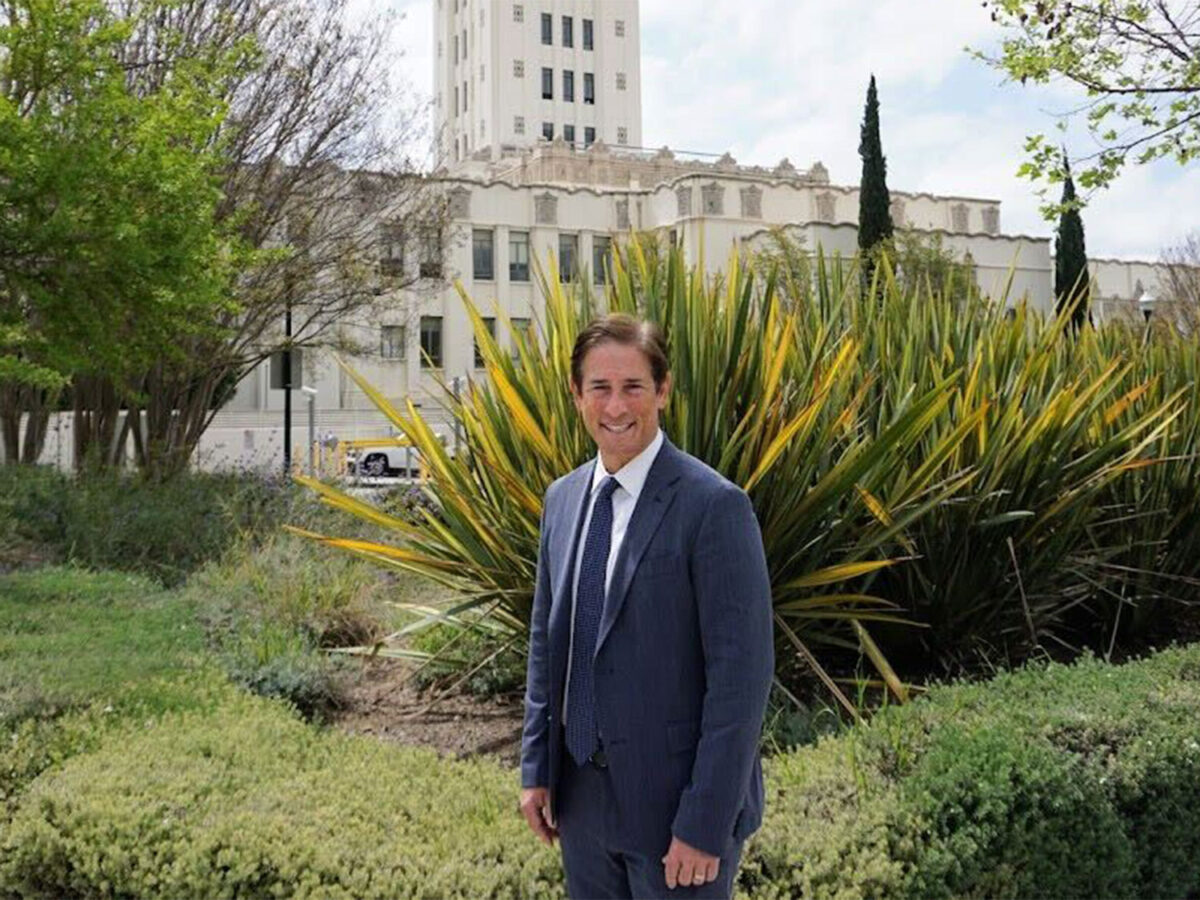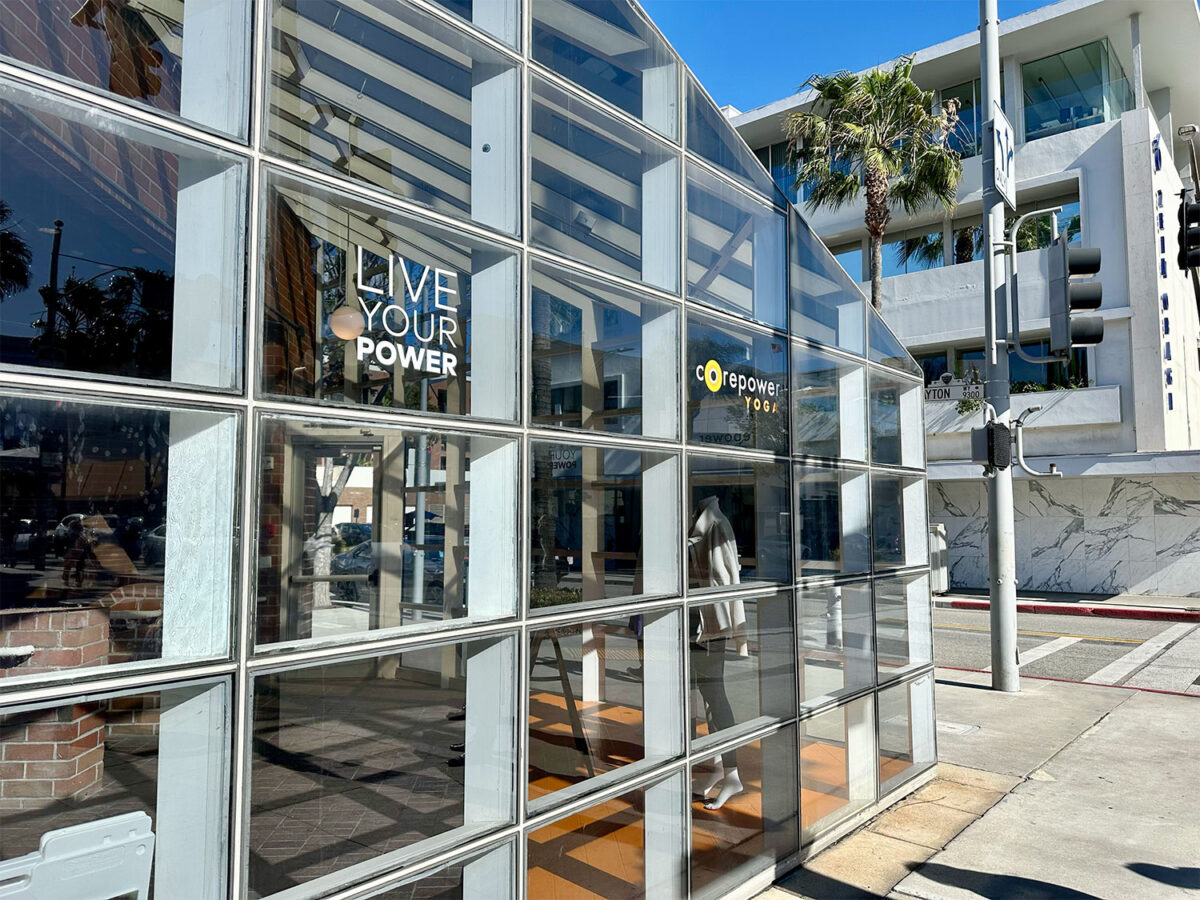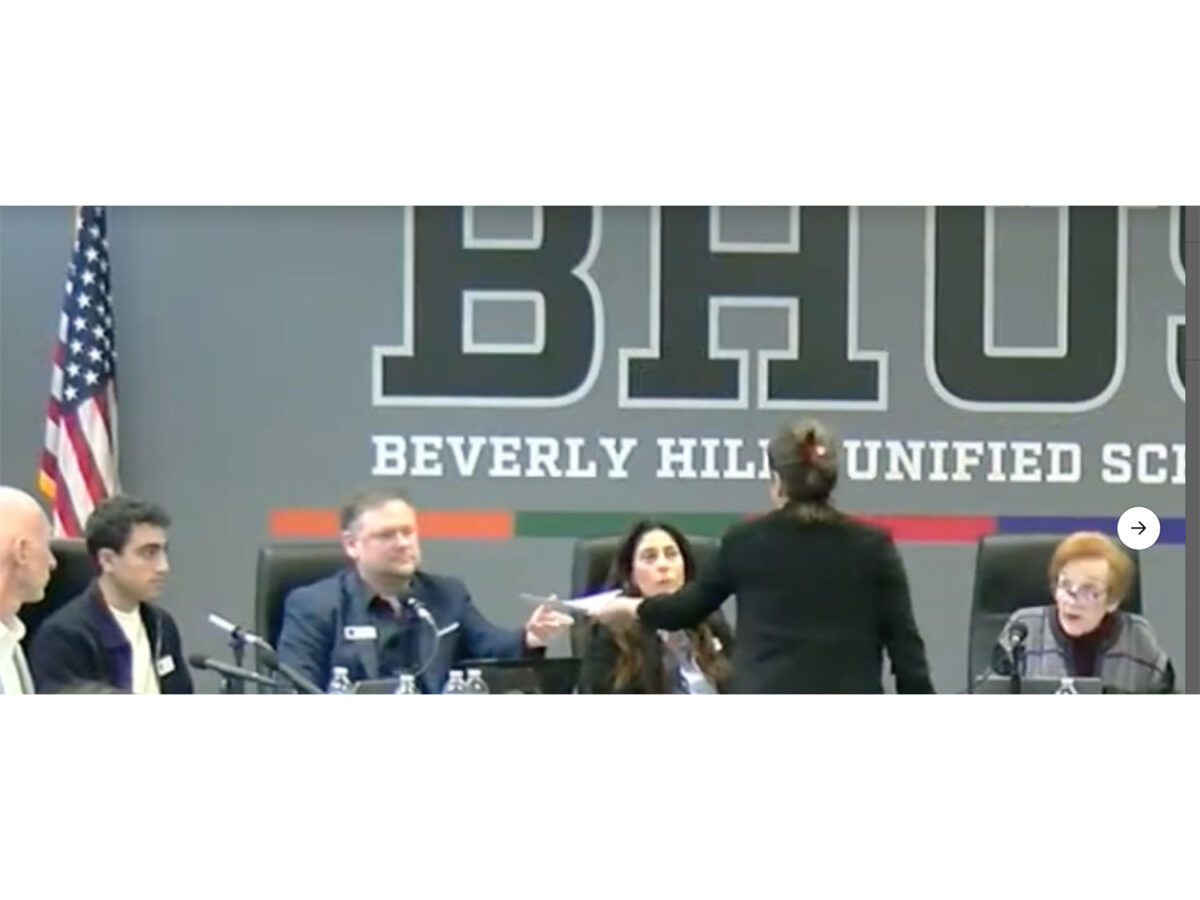“My wife asked me after Oct. 7 if I wanted to see her therapist. The best therapy for me was to play basketball,” said Omer Bilanski, general manager of an Israeli high school basketball team that is reuniting for the first time at Sinai Temple in Westwood after a year of displacement.
The Courier visited the team as it practiced this week at the gym at Sinai Temple.
It’s a bittersweet moment, as the teammates have been scattered across Israel after their homes were destroyed on Oct. 7. With the help of Sinai Temple and Rabbi Erez Sherman, who is hosting the boys for a one-week visit, the team now has another chance to rekindle their friendships on the court. On the evening of Dec. 4, the team attended a Los Angeles Clippers game, where Bilanski was honored as a community hero alongside Rabbi Sherman.
Throughout their stay in the Southland, the team played various scrimmages with local teams and met with basketball professionals, including Angel McCoughtry, a WNBA player and two-time Olympian who was moved by the boys’ uplifted spirits. “I was in awe. If no one told me what those boys had been through, I wouldn’t have known. Our problems are what we make of them—just to see the smiles on their faces. Playing sports gets you through anything in your life. It will keep you out of trouble,” McCoughtry told the Courier.
Sherman explained that his enthusiasm for the project stems from his passion for Judaism, Israel, and sports. With the help of Project 24 Israel, which was formed after Oct. 7, Sherman came up with the idea of bringing the teenage boys to Los Angeles. “I saw that they did something similar with other kids from the southern border of Gaza about six months ago,” he said. “This organization asked the kids, ‘What’s your magic power?’ The kids said, ‘Basketball.’ So, we fundraised and brought them to Los Angeles. Every day, they do something basketball-related and practice because they haven’t been a team for over a year.”
The team’s reunion has been supported by the Los Angeles sports community. “I watched this last week as the generosity of the sports community in Los Angeles has been incredible—donating tickets, experiences, meals,” said Sherman.
Many of the boys lost family members, friends, and their communities on Oct. 7. For the past year, they have been scattered across the country, unable to practice together until now. “This is the first time the 15 of these boys have been together as a unit,” Sherman noted. “I’ve just watched the last 24 hours. The organization told me the magic would happen. I didn’t understand that until I’ve witnessed the magic happening.”
Shoham Cohen, one of the team members, has been living in a hotel by the Dead Sea since the Oct. 7 attacks. He lost a best friend that day and has since lived in a state of precarity, with his home destroyed. He explains that distance forced him to quit the team, but the warm welcome from the Los Angeles sports community has been exciting. “They’re waiting for us. They want to see us, to hear us. So, it’s cool,” he said with a smile.
Ran Gold, the team’s coach, was at a bachelor party when the events of Oct. 7 began. He soon discovered that while his family was safe, his neighbors had been killed. He describes a feeling of guilt for not being there to mentor the boys over the past year. A few days after the attacks, he reached out to the team. “I sent them a message and told them something to give them motivation and power,” he said.
“I have a feeling of letting them down that I haven’t been with them for the last year,” Gold explained. The reunion has been emotional. “There are kids who need it, need to hold on to this group to give them power. There are people, like me, who need to understand that this chapter is over.”
Gold believes basketball provides the boys with valuable life lessons. “This game is about becoming a stronger person, even when you lose, how to handle it, and even when you win, how to handle it without being a show-off,” he said. The trip also gave the boys an opportunity to process the trauma of Oct. 7. “We are talking about what happened on the 7th. Every kid has his own story—losing family members, losing friends,” Gold said.
Bilanski stresses the therapeutic power of basketball. “I play the game when I need to shoot, when I need to breathe. We talk about our stories and our families.” He said that the boys’ mood and confidence have improved over the past few days. He observed that even the 15-hour flight from Israel was a heartwarming time for the boys to reconnect and bond. “This is what I need to do in my life. This is why God sent me. I kept trying to be in contact with all of them, but it was hard. Some were inland. Some were by the Dead Sea. Some were in Tel Aviv,” Bilanski said.
Sherman highlighted the significance of Bilanski being honored at the Clippers game. “It’s Jewish Heritage Night, but their coach will be honored as the Community Hero of the night. He’s standing on the court in front of 30,000 people, saying, ‘I’m here, we’re here, and basketball has brought me here.’”







